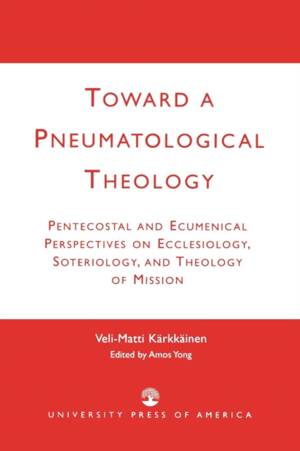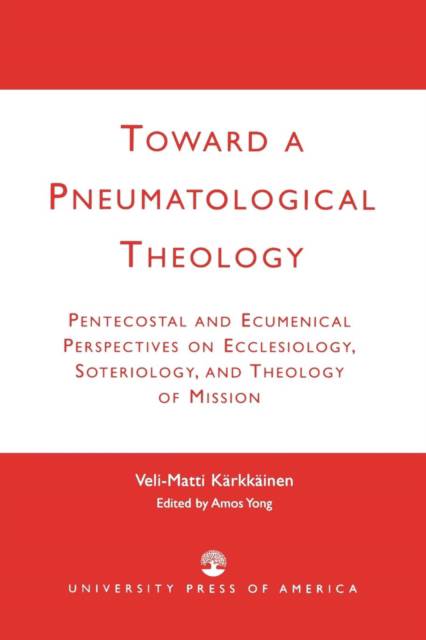
Je cadeautjes zeker op tijd in huis hebben voor de feestdagen? Kom langs in onze winkels en vind het perfecte geschenk!
- Afhalen na 1 uur in een winkel met voorraad
- Gratis thuislevering in België vanaf € 30
- Ruim aanbod met 7 miljoen producten
Je cadeautjes zeker op tijd in huis hebben voor de feestdagen? Kom langs in onze winkels en vind het perfecte geschenk!
- Afhalen na 1 uur in een winkel met voorraad
- Gratis thuislevering in België vanaf € 30
- Ruim aanbod met 7 miljoen producten
Zoeken
Toward a Pneumatological Theology
Pentecostal and Ecumenical Perspectives on Ecclesiology, Soteriology, and Theology of Mission
Veli-Matti Kärkkäinen
Paperback | Engels
€ 151,45
+ 302 punten
Omschrijving
Pentecostalism has been known much more for its religious experientialism than for its theology. During the past generation, however, Pentecostals have taken up the task of reflecting theologically from their experience of the Spirit of God. This book represents Pentecostal theology at its best, being thoroughly and unabashedly Pentecostal on the one hand, and yet being deeply ecumenical on the other.
Specificaties
Betrokkenen
- Auteur(s):
- Uitgeverij:
Inhoud
- Aantal bladzijden:
- 316
- Taal:
- Engels
Eigenschappen
- Productcode (EAN):
- 9780761823896
- Verschijningsdatum:
- 4/09/2002
- Uitvoering:
- Paperback
- Formaat:
- Trade paperback (VS)
- Afmetingen:
- 153 mm x 228 mm
- Gewicht:
- 489 g

Alleen bij Standaard Boekhandel
+ 302 punten op je klantenkaart van Standaard Boekhandel
Beoordelingen
We publiceren alleen reviews die voldoen aan de voorwaarden voor reviews. Bekijk onze voorwaarden voor reviews.









